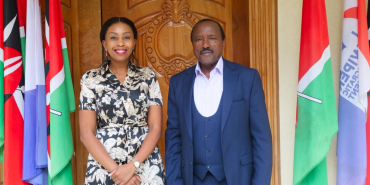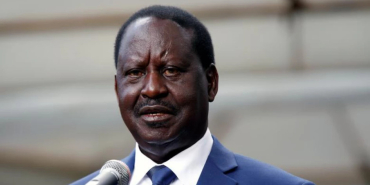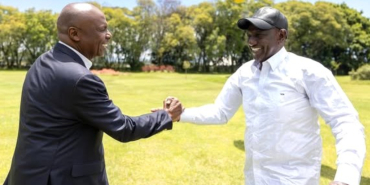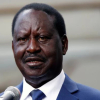Supreme Court Warns Public against Commenting on Presidential Petition

The Supreme Court judges have warned parties to the presidential election petition, their agents, supporters, and the public to refrain from making comments touching the petition filed by Raila Odinga, pending the determination of the matter.
In a statement, the highest court in the land directed opposition leaders Raila Odinga and Kalonzo Musyoka, President Uhuru Kenyatta, the Independent Electoral and Boundaries Commission and its chairman Wafula Chebukati not to make opinions or discuss the petition.
“The petitioners, respondents, and any other party to the petition, including their agents, advisors or supporters, in adherence to the sub judice rule, are directed to refrain from prosecuting the merits of their case in any forum other than this court,” the Supreme Court judges said.
They warned: “The public should avoid making statements that are intended or which could be perceived as intended to direct the court on the conduct of the petition.”
Chief Justice David Maraga, his deputy Philomena Mwilu, Justices Mohamed Ibrahim, Prof Jackton Ojwang, Dr Smokin Wanjala, Isaac Lenaola, and Lady Justice Njoki Ndung’u signed the statement released on Wednesday.
“Statements that profile individual judges in a manner likely to prejudice public opinion on the conduct of the petition should be avoided,” they said.
The media was also cautioned against breaching its code of conduct under the law while carrying its role of keeping the public informed.
A day after the petition was filed, President Kenyatta’s lawyers and MPs elected on his Jubilee Party ticket went on public to dismiss the case as weak, and exuded confidence of a win at Kenya’s apex court.
On Tuesday, during the inauguration ceremony of Mombasa governor Hassan Joho, Raila Odinga also commented on the case saying,
“The Supreme Court is made up of seven judges. The discretion of seven individuals, however wise, can neither represent nor substitute the voice of 15 million people,”
“Seven individuals can be intimidated, they can be compromised and they can make genuine mistakes. Kenyans are still trying to understand what exactly happened in the Supreme Court in 2013 when a decision about their votes was delivered in minutes and a paragraph,” he said.








Add new comment